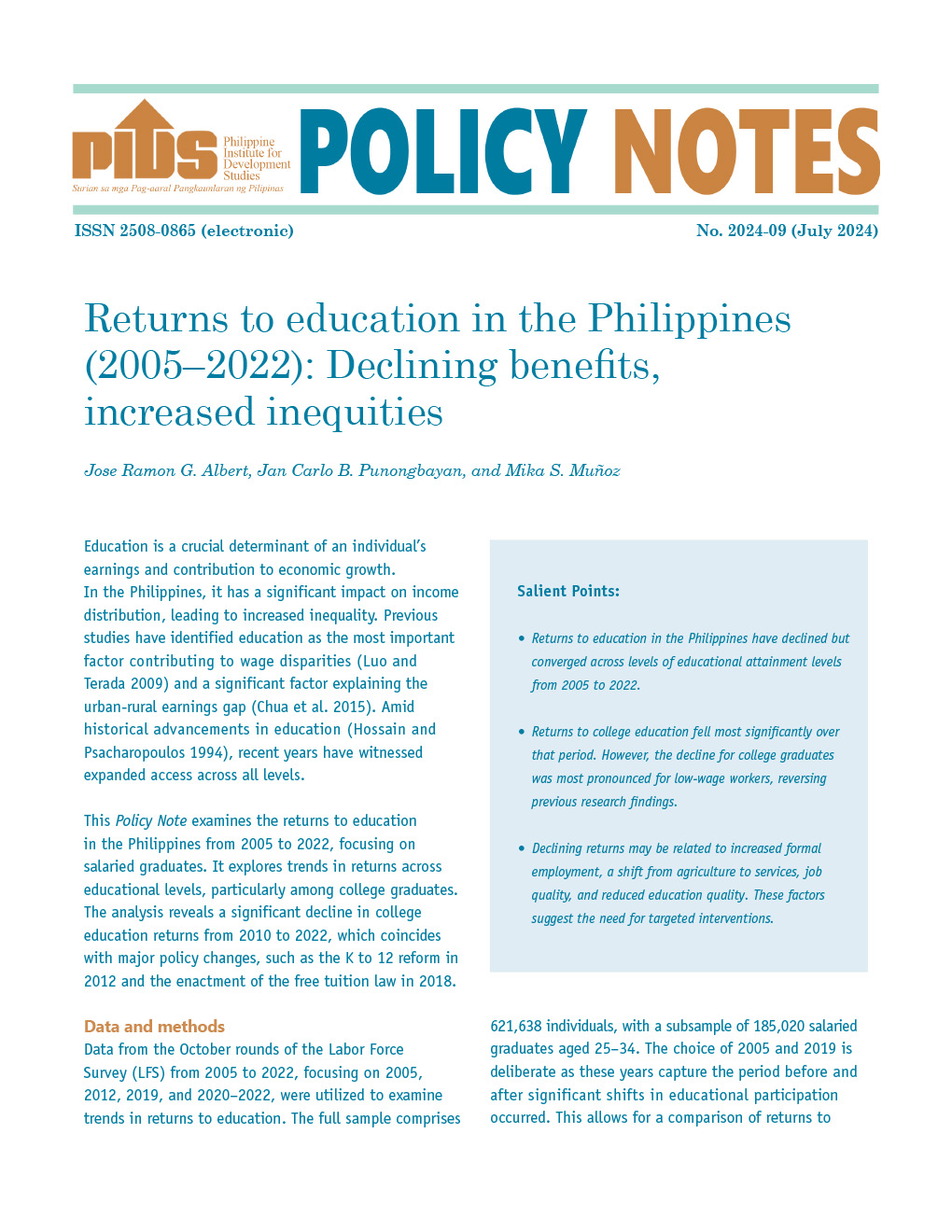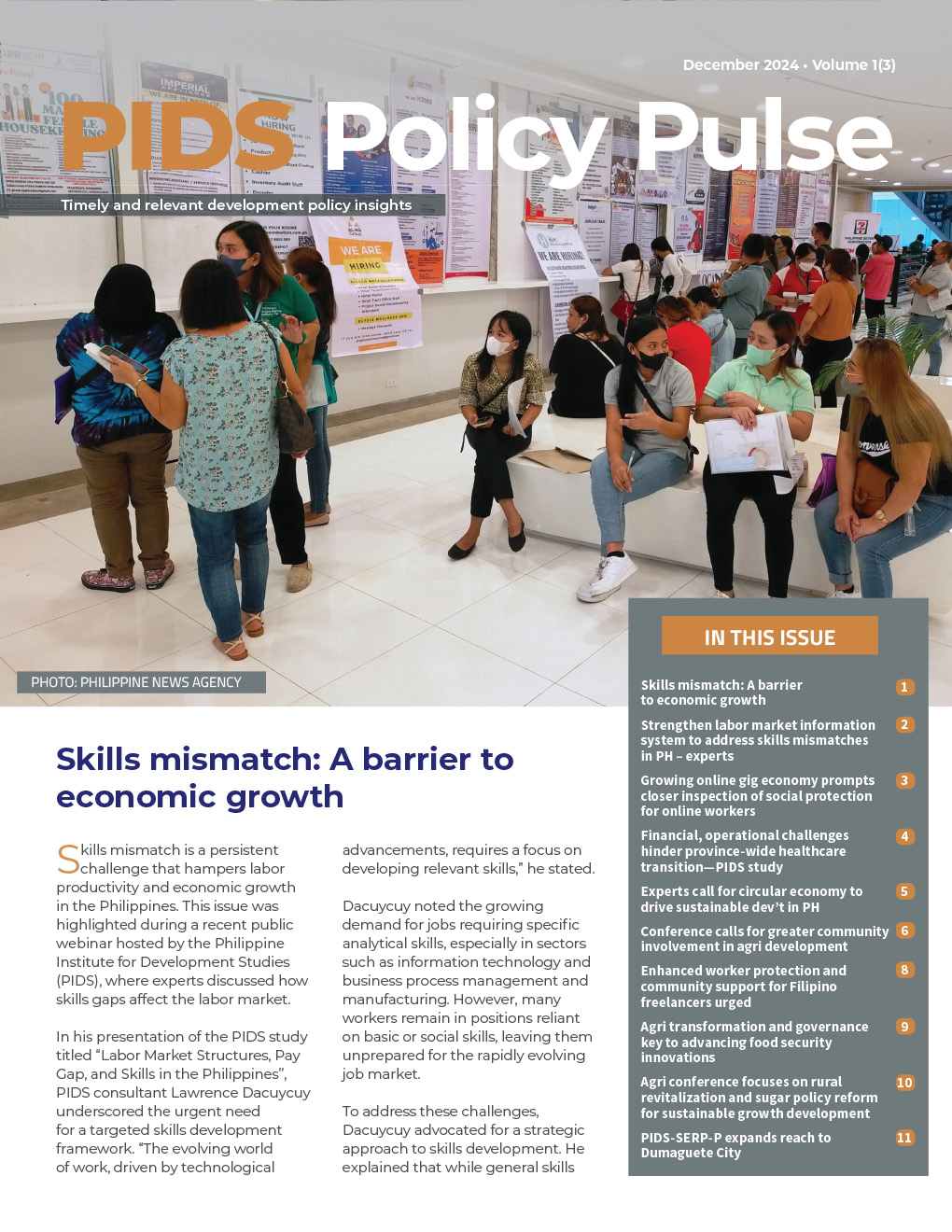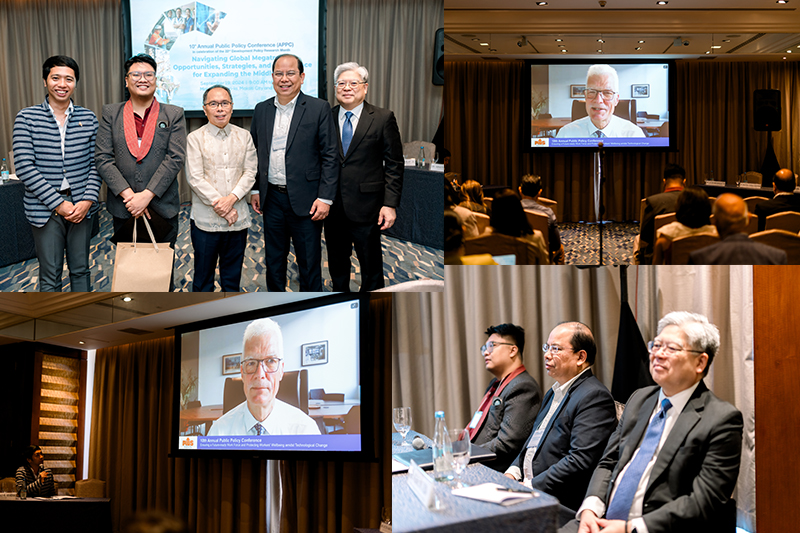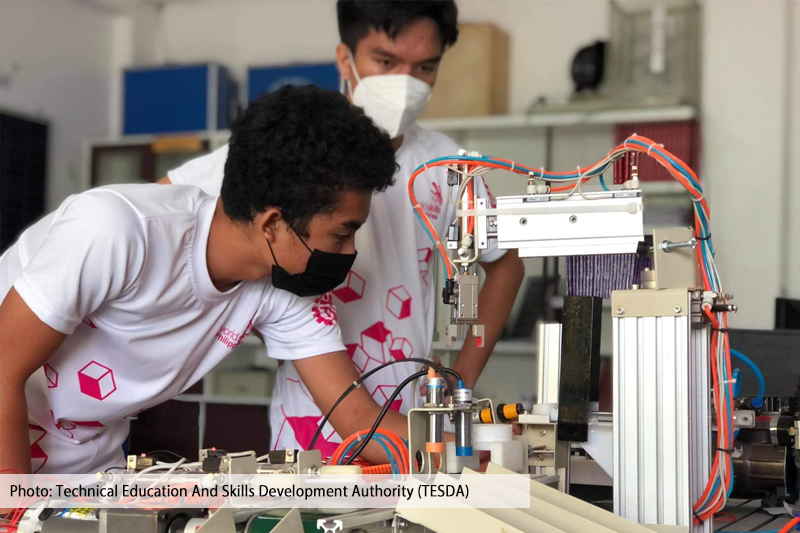
A study of state think tank Philippine Institute for Development Studies (PIDS) called on government to craft policies and programs that will give value to the unpaid work of Filipino men and women.
Unpaid work may refer to housework, home production, nonmarket work, or those pertaining to reproductive roles.
PIDS Senior Research Fellow Connie Dacuycuy in her paper “Why and how should we value unpaid work?” noted that a large percentage of primed-aged (25-59 years old) men and women in the country are not looking for market jobs because they are tied up with housework.
According to Dacuycuy, housework includes taking care of young and old people and doing chores like preparing or cooking food, washing clothes, and house cleaning.
Compared to single women, she noted that the prevalence of nonmarket work, particularly housework, is higher among married women at around 99 percent based on 2006-2015 data.
Meanwhile, the percentage of single men engaged in housework was lower than that of married men (27-38% vs 34-41%) in 2006-2014. In 2015, the number of married men engaged in housework rose to 95 percent and 67 percent for single men.
The 2012 International Social Survey Programme also showed that women and men spend 30 and 18 hours on care work, respectively. It also reported that women devote 25 hours in housework while men spend only 16 hours.
Dacuycuy stressed that housework has important implications on human capital accumulation and labor market outcomes.
Nonmarket labor, “especially care work, may give rise to interruptions in market participation, with women particularly affected given their child-bearing and child-nurturing roles”.
Consequently, the market work interruption of women can adversely affect their positions in the formal labor market, she added.
She explained that “irregular workers are likely to possess inferior skills” and that intermittent job leaves a negative impression on employers hence, “the provision of training to irregular workers is viewed as a risky investment.”
Unpaid work, however, also has positive consequences. “The home is considered a vital partner of education institutions and mothers are crucial in realizing and reinforcing learning outcomes,” Dacuycuy pointed out. Basically, the unpaid work of mothers contributes to nurturing the next generation of healthy citizens and potential leaders. (READ: Women’s labor market participation in PH low, says gender experts)
Given its direct and indirect socioeconomic impacts to society, Dacuycuy laid down a set of recommendations to encourage government to prioritize and value the unpaid work of Filipino men and women.
Among these is to urge the government to broaden job opportunities for both sexes through telecommuting.
Dacuycuy said concerned government agencies like the Department of Labor and Employment and the Department of Trade and Industry should utilize digital platforms to increase online jobs such as study tutorials and editorial services, and to assist micro and small enterprises to be more visible in local markets, respectively.
Another proposal is to grant incentives to working couples who belong to a specific income bracket and have preschool children. This can be done by deducting child-care expenses (e.g., day-care services, nanny’s wage) from the income of couples in the lowest taxable income bracket or by providing subsidies to tax-exempt workers.
The study also recommended improving the quality of child-care services in the country to encourage mothers to return to the labor market. Moreover, it noted that a “fast and reliable mass transportation is also a key to reducing the burden of unpaid work” and a “fast, cheap, and reliable internet can help men and women pursue work from home.”
Furthermore, the study urged lawmakers to craft more legislations along the lines of flexi-time and the expanded maternity/paternity benefits. “A four-day work week in the public sector is a good starting point,” it said.
It also highlighted the need to strengthen information campaigns for unpaid work by posting related information materials (e.g., infographics featuring the benefits of men’s role in sharing the burden of housework) in government offices and on their websites.
Meanwhile, the author urged the Philippine Statistics Authority to include time-use questions as riders in its regular surveys such as the Labor Force Survey. The availability of time-use data, she explained, will greatly aid the visibility of unpaid work.
Lastly, Dacuycuy called on government to design systems that will help the country prepare for an increasing elderly population. “The increase in caregiving demands due to aging or health deterioration can lead to low labor productivity (i.e., absenteeism, tardiness) and therefore should be included in policy discussions,” she said. ###
Unpaid work may refer to housework, home production, nonmarket work, or those pertaining to reproductive roles.
PIDS Senior Research Fellow Connie Dacuycuy in her paper “Why and how should we value unpaid work?” noted that a large percentage of primed-aged (25-59 years old) men and women in the country are not looking for market jobs because they are tied up with housework.
According to Dacuycuy, housework includes taking care of young and old people and doing chores like preparing or cooking food, washing clothes, and house cleaning.
Compared to single women, she noted that the prevalence of nonmarket work, particularly housework, is higher among married women at around 99 percent based on 2006-2015 data.
Meanwhile, the percentage of single men engaged in housework was lower than that of married men (27-38% vs 34-41%) in 2006-2014. In 2015, the number of married men engaged in housework rose to 95 percent and 67 percent for single men.
The 2012 International Social Survey Programme also showed that women and men spend 30 and 18 hours on care work, respectively. It also reported that women devote 25 hours in housework while men spend only 16 hours.
Dacuycuy stressed that housework has important implications on human capital accumulation and labor market outcomes.
Nonmarket labor, “especially care work, may give rise to interruptions in market participation, with women particularly affected given their child-bearing and child-nurturing roles”.
Consequently, the market work interruption of women can adversely affect their positions in the formal labor market, she added.
She explained that “irregular workers are likely to possess inferior skills” and that intermittent job leaves a negative impression on employers hence, “the provision of training to irregular workers is viewed as a risky investment.”
Unpaid work, however, also has positive consequences. “The home is considered a vital partner of education institutions and mothers are crucial in realizing and reinforcing learning outcomes,” Dacuycuy pointed out. Basically, the unpaid work of mothers contributes to nurturing the next generation of healthy citizens and potential leaders. (READ: Women’s labor market participation in PH low, says gender experts)
Given its direct and indirect socioeconomic impacts to society, Dacuycuy laid down a set of recommendations to encourage government to prioritize and value the unpaid work of Filipino men and women.
Among these is to urge the government to broaden job opportunities for both sexes through telecommuting.
Dacuycuy said concerned government agencies like the Department of Labor and Employment and the Department of Trade and Industry should utilize digital platforms to increase online jobs such as study tutorials and editorial services, and to assist micro and small enterprises to be more visible in local markets, respectively.
Another proposal is to grant incentives to working couples who belong to a specific income bracket and have preschool children. This can be done by deducting child-care expenses (e.g., day-care services, nanny’s wage) from the income of couples in the lowest taxable income bracket or by providing subsidies to tax-exempt workers.
The study also recommended improving the quality of child-care services in the country to encourage mothers to return to the labor market. Moreover, it noted that a “fast and reliable mass transportation is also a key to reducing the burden of unpaid work” and a “fast, cheap, and reliable internet can help men and women pursue work from home.”
Furthermore, the study urged lawmakers to craft more legislations along the lines of flexi-time and the expanded maternity/paternity benefits. “A four-day work week in the public sector is a good starting point,” it said.
It also highlighted the need to strengthen information campaigns for unpaid work by posting related information materials (e.g., infographics featuring the benefits of men’s role in sharing the burden of housework) in government offices and on their websites.
Meanwhile, the author urged the Philippine Statistics Authority to include time-use questions as riders in its regular surveys such as the Labor Force Survey. The availability of time-use data, she explained, will greatly aid the visibility of unpaid work.
Lastly, Dacuycuy called on government to design systems that will help the country prepare for an increasing elderly population. “The increase in caregiving demands due to aging or health deterioration can lead to low labor productivity (i.e., absenteeism, tardiness) and therefore should be included in policy discussions,” she said. ###












